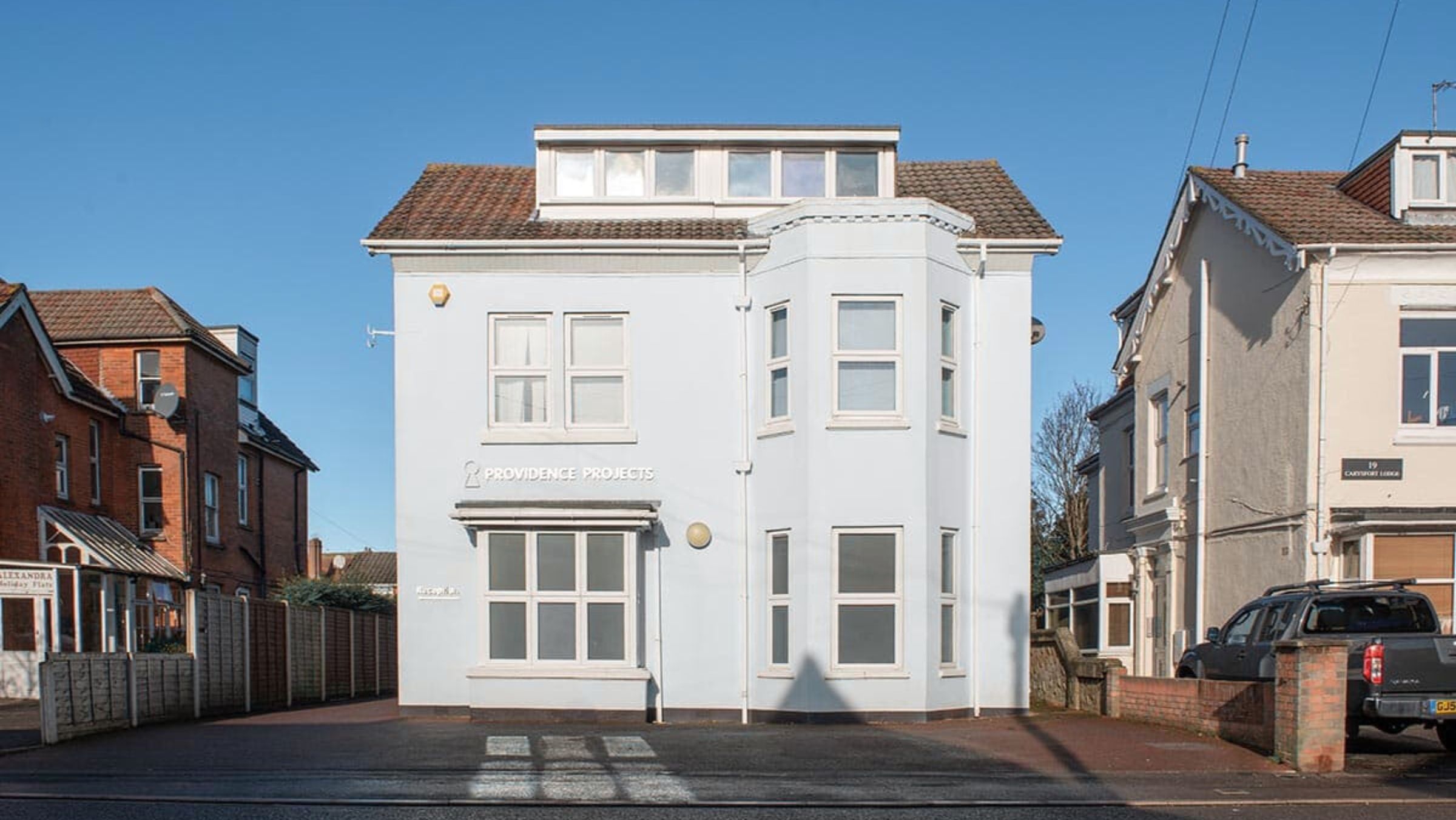Last Updated:
August 25th, 2025
Secondary Care
Strengthening your recovery for long-term success
Completing your initial rehab programme for addiction recovery is an incredible achievement; it’s proof that you’ve rebuilt your foundations, reignited your confidence, and are committed to a healthier future. But the truth is, your recovery doesn’t end when you leave residential treatment. In fact, this next stage in the treatment pathway can make the difference between lasting success and slipping back into old patterns. That’s why secondary care isn’t just a helpful add-on; it’s a vital continuation of your recovery journey.

What is Secondary Care?
Secondary care, sometimes referred to as step-down care or extended care, is the crucial bridge between the structured environment of residential rehab (primary care) and the independence of everyday life.
In primary care (typically 28 days inpatient rehab), you’ve built the foundation of your recovery: ridding your body of the harmful substance through detox, gaining essential skills, deepening self-awareness, and learning practical strategies to prevent relapse. Secondary care is where those lessons move from theory to practice. It provides a supportive, semi-structured environment where you can begin applying your new skills in real-life situations, with professional guidance to help you adapt, refine, and grow.
Unlike the intensity of full-time residential treatment, secondary care offers more freedom and personal responsibility while still surrounding you with the safety net of expert support. This stage is about strengthening your resilience, building confidence in your abilities, and gradually reclaiming independence without feeling isolated or overwhelmed.
Core elements of secondary care include:
- Relapse Prevention: Reinforcing coping mechanisms and recognising triggers before they become setbacks.
- Practical life skills: From managing finances to healthy meal planning, building routines that sustain long-term recovery.
- Ongoing therapy and emotional support: Continued access to individual and group therapy to process challenges as they arise
Why Secondary Care Matters
Addiction profoundly impacts lives, from deteriorating physical health to worsening mental wellbeing, While primary care provides the stability and structure needed to break the cycle, early recovery remains a fragile stage. Even after weeks of abstinence, old triggers, unresolved emotions, and the pressures of daily life can feel overwhelming.
For many, moving straight from a highly structured rehab environment into complete independence is like stepping off a ledge, the change is sudden, and the safety net is gone. This abrupt transition can leave even the most determined individuals feeling vulnerable and unprepared.
Secondary care prevents that risk. It serves as a purposeful bridge between treatment and independence, allowing you to adjust at a steady, manageable pace while keeping the momentum you’ve built in primary care alive.
In practical terms, secondary care:
- Reduces relapse risk by ensuring continued access to professional guidance, therapy, and peer support.
- Strengthens coping strategies by applying them in real-world scenarios, with feedback to refine your approach.
- Builds confidence in navigating responsibilities, relationships, and stressful situations without reverting to old habits.
- Eases the transition into independence, replacing the shock of sudden change with a smooth, supported handover.
Secondary care isn’t just an extra step; it’s a cushion. It reinforces the progress you’ve made, helps you meet challenges head-on, and gives your recovery the stability it needs to last a lifetime.
Who Is Secondary Care For?
Secondary care is specifically designed for those who have successfully completed an initial rehab programme and are ready for the next step, but still recognise the value of professional guidance and structured support.
It’s ideal for those who:
- Are committed to sustaining long-term recovery and understand that healing is an ongoing journey.
- Want a safe, sober living environment that offers balance, freedom to grow, combined with the reassurance of a supportive framework.
- Need additional time and space to develop essential life skills, rebuild relationships, or prepare for the demands of work or study.
- Are navigating the challenging transition back into everyday life and seek a gradual, manageable reintegration.
Secondary care also serves as a crucial option for individuals who may have previously attempted to reintegrate independently but found the process overwhelming or encountered setbacks. It offers a structured and compassionate environment to strengthen recovery, rebuild resilience, and regain confidence in one’s ability to live a healthy, fulfilling life.
Secondary Care at Providence Projects
Our secondary care programme is offered exclusively at Providence Projects in Bournemouth, a cornerstone centre within the UKAT family, specialising in extended care and relapse prevention. This programme bridges the critical gap between primary treatment and independent recovery by combining structure, professional expertise, and a strong community spirit to support lasting success.
With UKAT, clients will benefit from a balanced approach that blends therapeutic intensity with real-world independence, consolidating progress, strengthening coping skills, and building confidence to face future challenges.
But, what exactly do you get from secondary care at Providence Projects?
Therapy is purposeful and engaging; there’s no room for passivity. Everyone is encouraged to take an active role, knowing that recovery demands focus, effort, and commitment.
Key therapy topics include:
- Building Self-Esteem: Developing confidence and a positive self-image essential for resisting relapse
- Healthy Relationships: Understanding boundaries, fostering communication, and rebuilding trust
- Anxiety and Stress Management: Practical tools to identify and navigate emotional triggers
- Relapse Prevention: Early identification of warning signs, and developing personalised, actionable plans
- The 12-Step Programme: A focus on the first three steps to embed foundational recovery principles
- Same-Sex Group Therapy: Held every two weeks (based on group size), providing a safe and supportive environment for gender-specific issues
Additional workshops and take-home assignments encourage ongoing reflection and real-life application, reinforcing learning beyond therapy hours.
Regular drug and alcohol testing maintains a safe, sober environment, protecting everyone’s recovery and reinforcing personal accountability.
- Recognise and understand personal triggers
- Build and maintain a structured, stable daily routine
- Establish and nurture a strong sober support network
- Develop contingency plans for managing setbacks or cravings
This proactive planning transforms uncertainty into confidence, equipping clients with practical tools and strategies to stay on track.
Clients take charge of their own meals, cooking and budgeting for themselves, further developing vital life skills. This balance of freedom and structure builds confidence and resilience, making recovery a lived experience, not just a clinical process.
- Beach-based activities and scenic coastal walks, encouraging connection with nature and physical fitness
- Team sports, such as volleyball to promote camaraderie and teamwork
- Weekly yoga sessions that enhance mindfulness, flexibility, and mental clarity
These activities complement therapeutic work, supporting holistic healing in mind, body, and spirit.
This carefully crafted balance of structure and freedom prepares clients not only to maintain sobriety but to thrive in the next vital phase of recovery: sober living. As the natural progression following secondary care, sober living offers a supportive, peer-driven environment where individuals continue to practice independence and resilience while surrounded by a community committed to sustained recovery.
Why Choose Secondary Care with UKAT?
As a fully integrated part of the UKAT network, The Providence Projects combines decades of expertise with a compassionate, person-centred approach. Here, clients benefit from:
- Tailored programmes designed to meet individual needs and challenges
- A strong, supportive community grounded in mutual respect and shared goals
- Access to experienced addiction professionals dedicated to ongoing recovery support
- A safe and structured environment that still encourages personal growth and independence
- Evidence-based therapies combined with practical recovery tools
This unique combination of professional care, personal responsibility, and community support ensures you leave secondary care not just sober, but equipped, confident, and ready to thrive independently.
Take That Next Step Today
Your recovery journey deserves a proven structure that truly supports lasting change. Our Secondary Care Programme is designed to build on the progress you’ve already made, providing the ongoing care and guidance necessary to maintain your recovery for the long term.
Reach out to our admissions team today, and discover how our pivotal secondary care programme can help turn your initial progress into lasting change.
Frequently Asked Questions
Aftercare, on the other hand, begins once you’ve completed structured treatment and are living independently. It’s lighter in structure, often weekly or monthly support groups, counselling, or check-ins, and is designed to help you maintain recovery long-term.
Overall, Secondary Care is still part of a structured programme with a recovery-focused living environment, while Aftercare is ongoing support you access while living at home.




